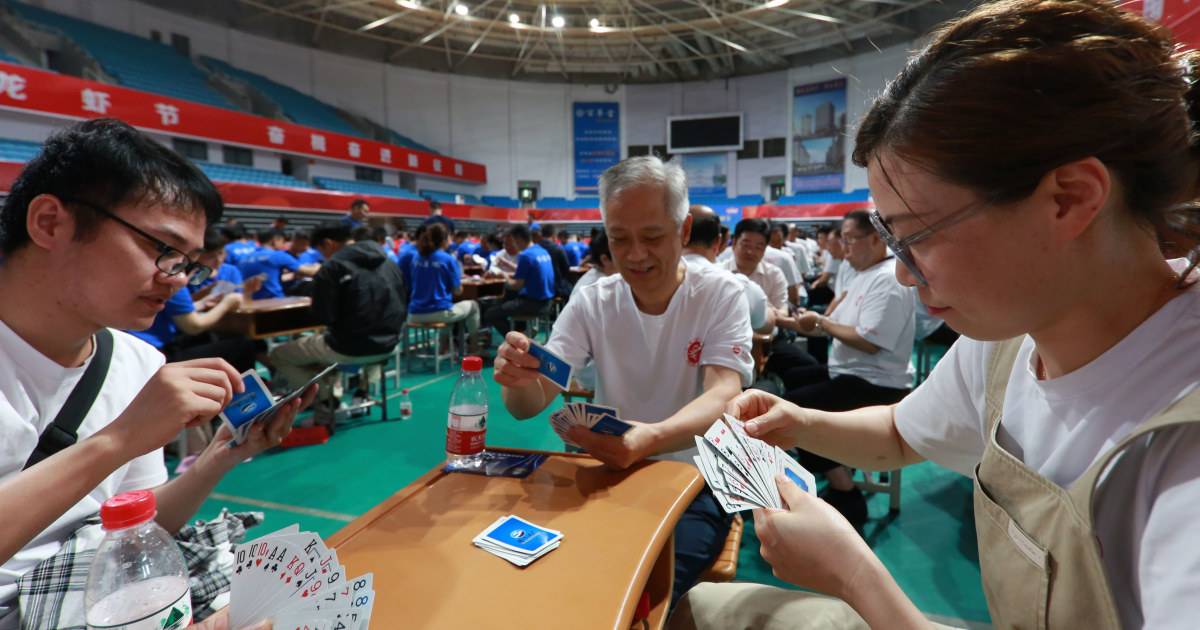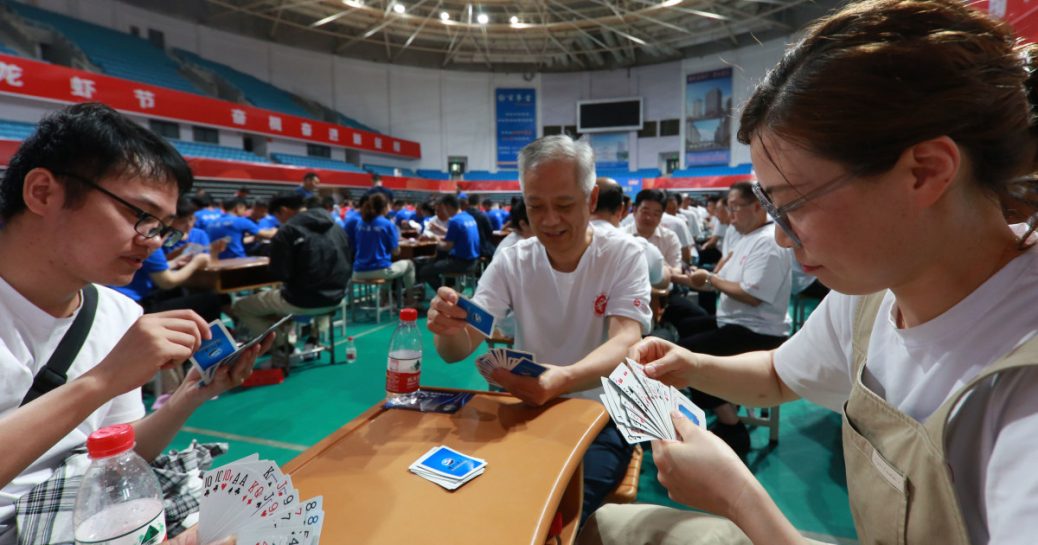
HONG KONG — As American investors pull funds out of China, local financiers are focusing more on finding business domestically — and learning a homegrown card game that might help them.
Guandan, also known as “throwing eggs” in Chinese, is a poker-like card game that originated in Jiangsu, one of the wealthiest provinces in China. Amid some of the tensest U.S.-China relations in decades, it has eclipsed Texas Hold’em as the must-have social skill for Chinese financial professionals.
Chris You, an associate at a U.S.-based venture capital firm in Beijing, said guandan is now more commonly played in the Chinese finance sector as U.S. curbs on investment in China alter the strategic landscape.
Last August, President Joe Biden issued an executive order restricting U.S. investment in China in strategic sectors including artificial intelligence, quantum computing and semiconductors. Commerce Secretary Gina Raimondo said Wednesday that she expected the rules implementing those restrictions to be completed by the end of the year.
The effects have not gone unnoticed in China, which has struggled to rebound economically since emerging from three years of pandemic isolation early last year.
Chinese President Xi Jinping and other Chinese officials have been trying to revive confidence in the world’s second-largest economy, with Xi visiting Europe last week for the first time in five years and meeting with top U.S. executives in Beijing in March. That same month, China’s State Council issued a list of 24 targeted measures designed to attract foreign investment, which at $33 billion in 2023 was the lowest in 30 years.
Investors in affluent Chinese provinces and cities, however, are doing whatever they can to court local government officials and other potential sources of business, including learning their favorite card game.
“To raise funds, investment institutions have to serve those who have money and cater to their preferences,” You said. “It is natural to play this local card game as a social activity.”
In Jiangsu and the neighboring province of Anhui, more than 20 million people are playing guandan regularly, the Chinese financial newspaper National Business Daily reported in January. In Shanghai, China’s business capital, the game is being promoted by the newly established Guandan Card Association, which is headed by billionaire Qi Shi, the newspaper reported separately.
Guandan has some distinct advantages over other Chinese games that are popular with business professionals, such as mahjong.
The object of the game, in which four players are paired up in two teams, is to work with your partner to ensure that one of you plays all your cards before either of your opponents does. It’s easy to learn and doesn’t take much time, allowing the players to finish before the first dishes are served.
And unlike Texas Hold’em and mahjong, guandan is not a betting game, making it safer to play at a time when Chinese officials are cracking down on illegal gambling.
Jerry Niu, who sells mutual funds in the southern city of Shenzhen, started playing the game last year at the invitation of his clients during a dinner meeting. It took him less than 10 minutes to learn the rules.
“You can’t always keep your mouth closed while playing ‘throwing eggs,’ it’s very natural to engage in conversation,” said Niu, who said topics of discussion range from market news and updates on acquaintances to idle gossip.
You said guandan lends itself to building stronger business partnerships than more adversarial games.
“When playing Texas Hold’em, everyone at the table is your rival, but when playing ‘throwing eggs,’ you have allies,” he said. “The process can help build closer relationships when meeting local government officials or socializing with clients.”
Guandan fever has spread beyond the financial industry and across China, with the number of players nationwide reaching 140 million, National Business Daily reported.
Students at a school in the central province of Hubei were even required to learn the game during their winter vacation to cultivate their intellectual ability and help them learn to be team players, the Chinese financial newspaper Jiemian News reported.
In major cities, some finance professionals volunteer to organize guandan gatherings of people from different industries.
Amice Wang, who works at a finance company in Beijing, played guandan for the first time last August, when she organized an in-person learning session at an activity center.
“The tensions between the U.S. and China definitely would affect China’s economy in general,” Wang said. “So I think it is better to follow the trend and learn more ways for our financiers to network no matter what company we are working for.”









Recent Comments